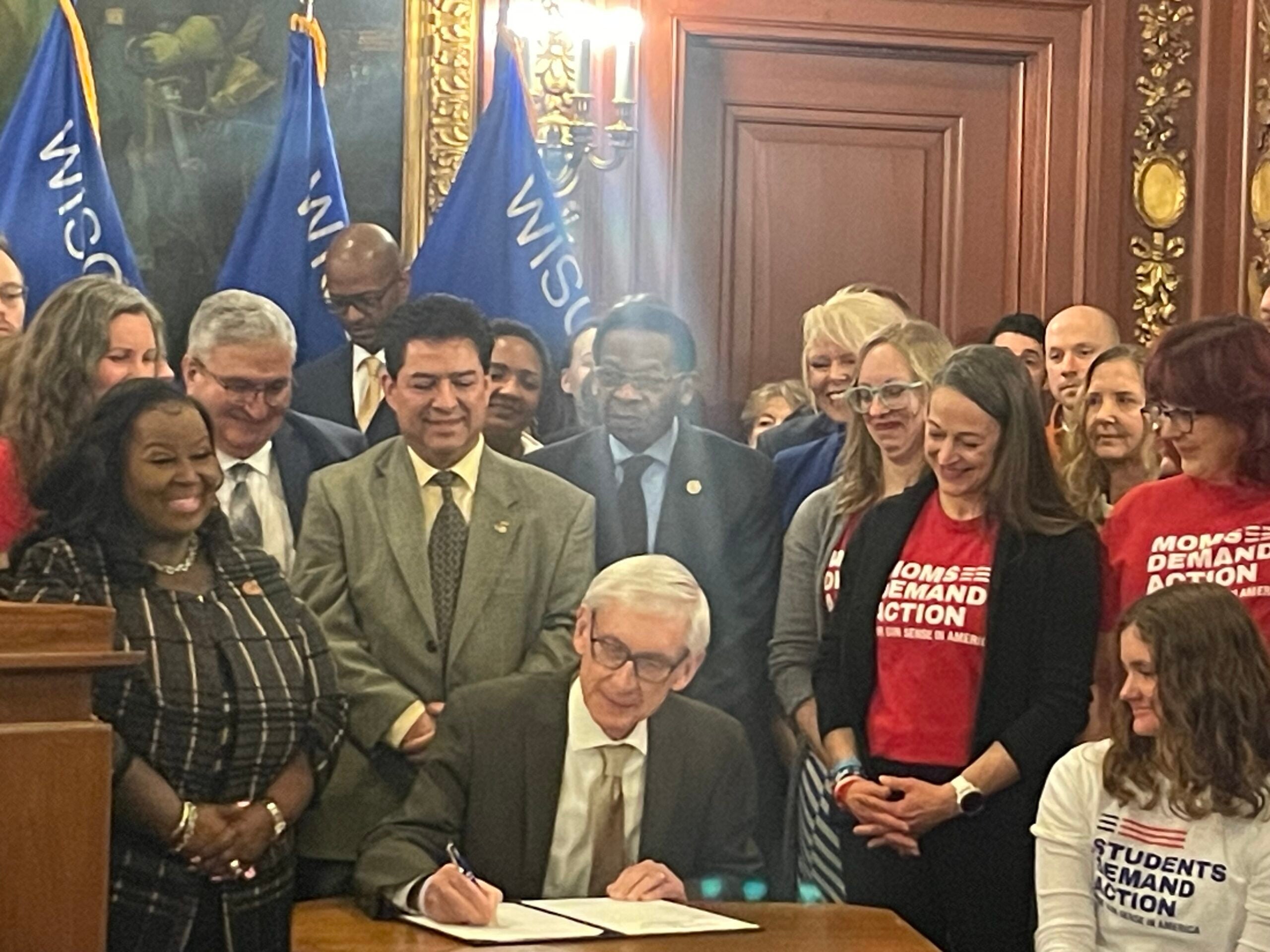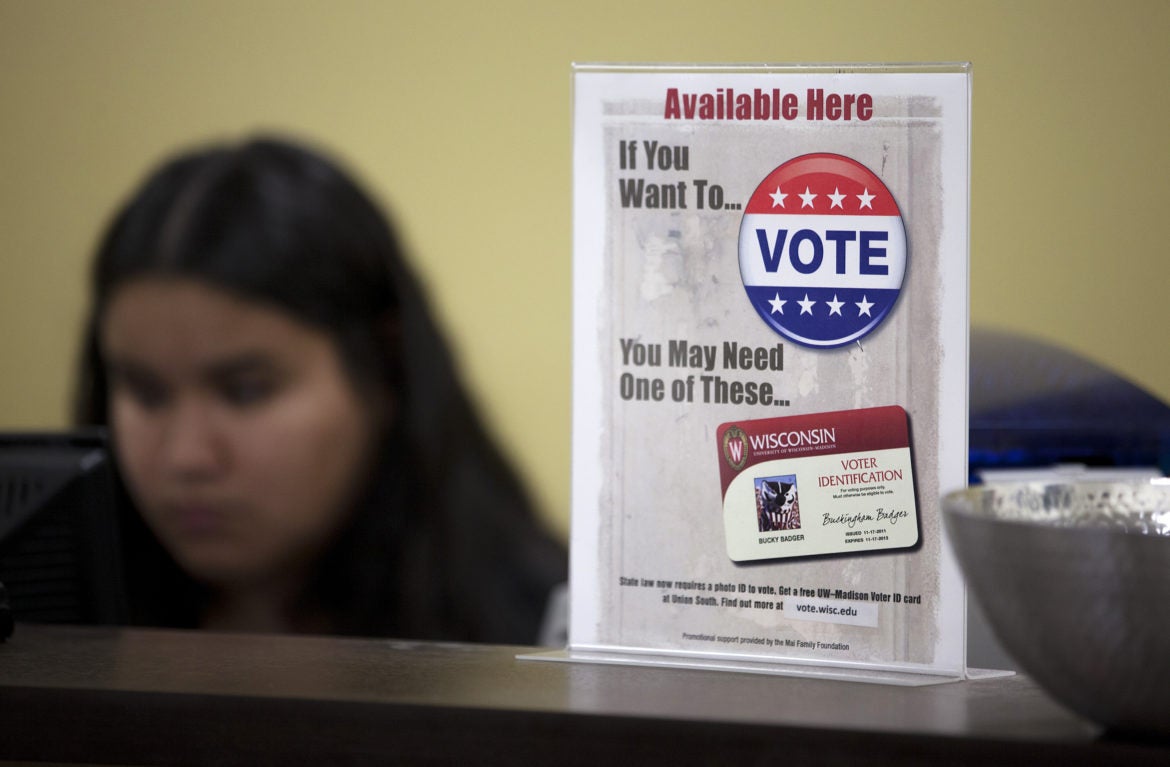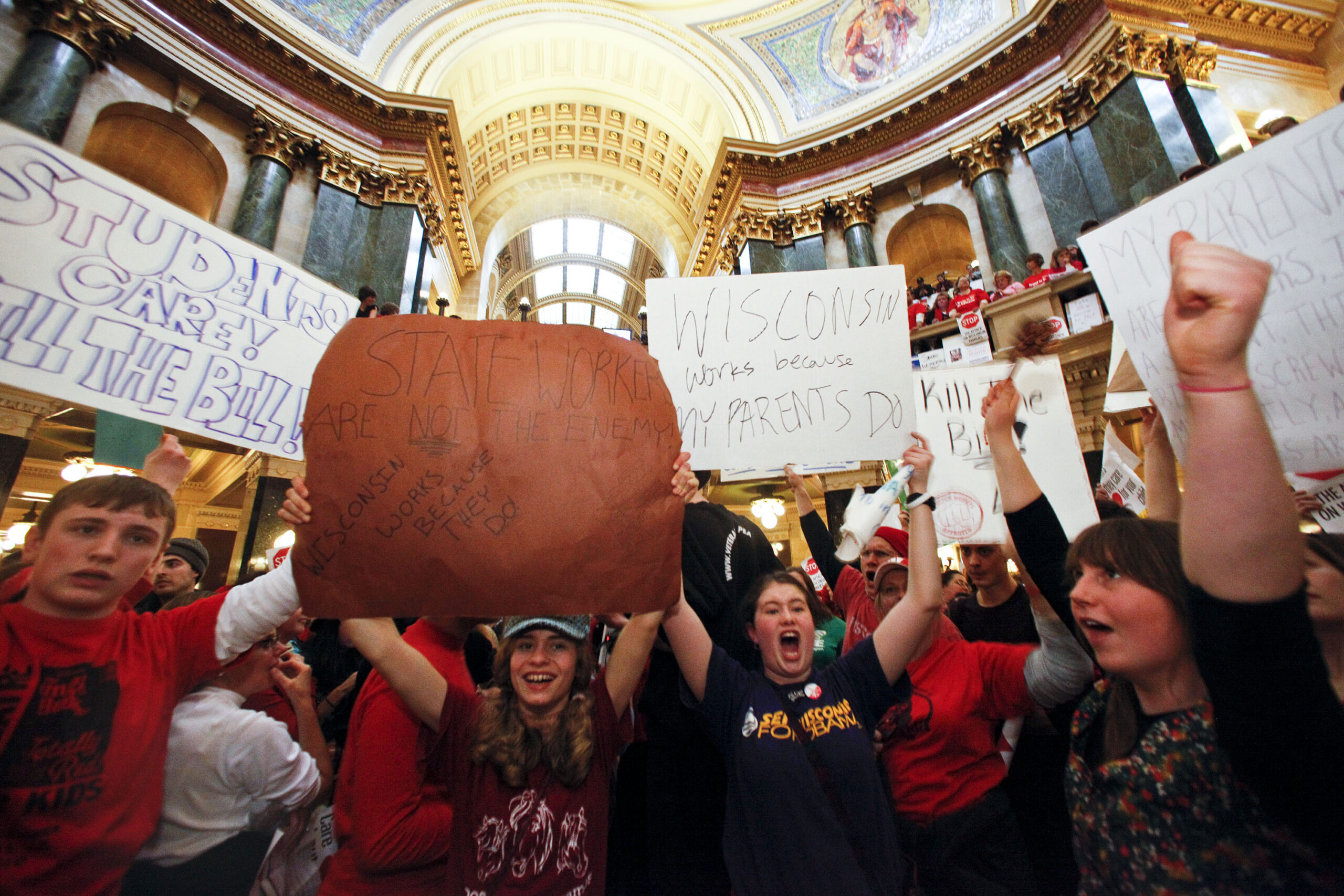Gov. Scott Walker signed a group of bills aimed at “crime prevention and victim protection,” at an event in Mount Pleasant on Friday.
One of those bills includes a new state law that would jeopardize a person’s teaching license if they help a known or suspected sex offender get hired at a school district.
The new law specifies it’s “immoral conduct for a department-licensed individual to assist a school employee, contractor or agent to obtain a new job in a school or school district if the licensed individual knows or has reasonable suspicion to believe the job seeker committed a sex offense against a student or a minor.”
Stay informed on the latest news
Sign up for WPR’s email newsletter.
“Immoral conduct” is grounds for the state superintendent to revoke a teaching license.
Walker said the law will prevent sex offenders from continuing to be hired by schools.
“I think one of the lawmakers called it ‘Don’t pass the trash,’” Walker said. “It was an interesting way of saying it, but saying that someone who’s a problem, making sure that they aren’t dismissed from one school district but allowed to go to another.”
Walker also approved increased penalties for patronizing prostitutes, and a law that criminalizes soliciting sexually explicit material from minors.
The group of bills also included measures to close common loopholes used to get around restrictions for drunk driving offenders.
One of the bills was targeted at offenders ordered to use an ignition interlock, a device that prevents a car from starting if the driver has been drinking.
The new law prevents anyone ordered to use an interlock from operating a vehicle without one. If they do, the court is required to extend their restriction time by six months for each violation.
“We need to crack down particularly on repeat offenders, that’s one of the biggest challenges,” Walker said. “We’ll see someone who’s been in multiple times and you think, that’s like letting someone out on the street who’s just a known menace.”
Walker also approved a law to prohibit adults from allowing underage drinking on a property they own or occupy.
Wisconsin Public Radio, © Copyright 2025, Board of Regents of the University of Wisconsin System and Wisconsin Educational Communications Board.






